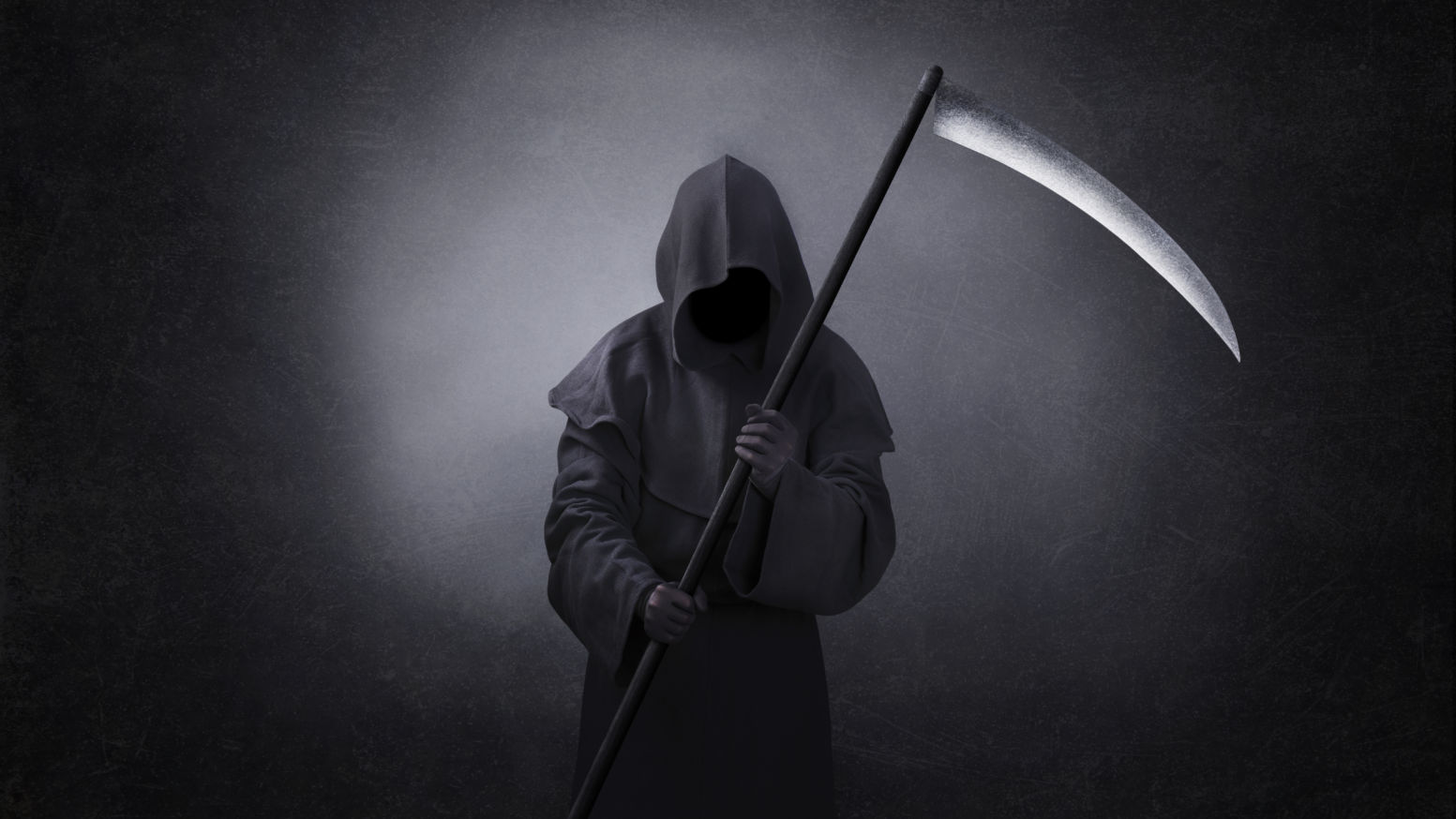The Kalam Cosmological Argument says that the universe began to exist in the finite past. According to this argument, the universe has not been around forever and, therefore, there is a first cause of the universe’s existence. Many atheists, however, reject the proposition that the universe had a beginning. In response to their objections, the theist could sift through the scientific data, but this often leads to a stalemate. So, how can we bridge the divide between atheists and theists regarding the beginning of the universe? One way to bridge the divide is to offer a compelling philosophical argument that shows the absurdity of an actual infinite causal chain existing in the real world. One such philosophical argument is The Grim Reaper Paradox.
The Grim Reaper Paradox
Imagine a victim, Fred, who is assailed by an infinite number of unstoppable executioners [1] – the Grim Reapers. Each Reaper is assigned a deadline between 11:00 p.m. and 12:00 midnight. If any Reaper finds Fred alive at its assigned deadline, it will kill Fred. However, if an earlier reaper has already killed Fred, it does nothing. So, Reaper #1 is assigned the deadline of midnight – he will kill Fred 60 minutes after 11:00 p.m. However, Reaper #2 is assigned to kill Fred only 30 minutes after 11:00. But Reaper #3 is assigned to kill Fred only 15 minutes after 11:00. And so on the line of reapers goes to infinity.
To survive, Fred must escape an infinite number of Reapers assigned to kill him at an infinite number of deadlines, which is impossible. In other words, by midnight, Fred will be dead. But here is the critical question: Which Reaper killed Fred? Well, it wasn’t Reaper #1 because Reaper #2 would have already killed him. And it wasn’t Reaper #2 because Reaper #3 would have already killed him. And it wasn’t Reaper #3, and so on ad-infinitum. So, for any reaper you point to, he will not have killed Fred because another Reaper would have already done the job. In other words, no Reaper kills Fred. But this gives us an explicit contradiction: On the one hand, a Reaper will have killed Fred. On the other hand, no Reaper will have killed Fred. The paradox reveals that the only way Fred is killed is if there is a finite number of Grim Reapers which allows the Reaper, who has the earliest deadline, to kill Fred.
Conclusion
The Grim Reaper paradox shows us that an infinite number of prior causes leads to contradictions. Consequently, we are justified in concluding that such causal chains cannot be instantiated in the real world. Just as it is logical to reject the existence of an actual infinite number of Reapers assigned to kill Fred, so it is also logical to reject the claim that the universe is infinitely old. In the end, The Grim Reaper paradox may or may not kill Fred, but it both kills and buries the claim of a past eternal universe.
[1] By “unstoppable,” I mean that Fred cannot escape the grim reapers. One of them will kill him. The important question is which grim reaper will kill Fred?
